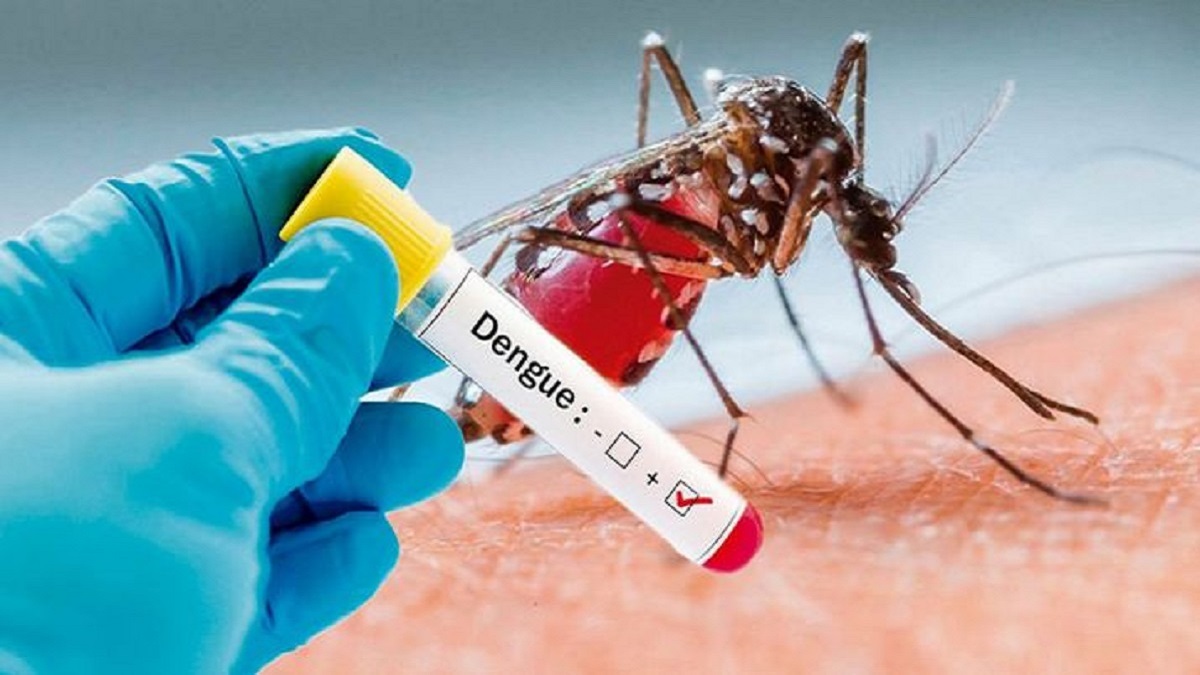As the month of July arrives, Bengaluru experiences a dramatic shift in its climate, with the monsoon rains making their much-anticipated entry. While the city's residents rejoice in the respite from the scorching summer heat, this seasonal change also brings with it a troubling concern – a sharp rise in dengue cases. With the prevalence of stagnant water and improper waste disposal providing breeding grounds for mosquitoes, the battle against dengue becomes a collective challenge for the citizens and health authorities of this bustling metropolis.
According to BBMP (Bruhat Bengaluru Mahanagara Palike) officials, the numbers paint a distressing picture. In June this year, the reported cases of dengue stood at 690. However, between July 1 and July 30, the figures skyrocketed to 1,649, representing a staggering 140% increase in just a month. As of July 29, the city has already witnessed a total of 4,739 dengue cases, leaving both authorities and residents deeply concerned.
Alarming Statistics:
The sudden spike in dengue cases has put immense pressure on Bengaluru's healthcare infrastructure. Hospitals and medical facilities are grappling with the influx of patients seeking diagnosis and treatment for the mosquito-borne viral infection. While dengue is not a new phenomenon in the city, the current surge is particularly worrying, necessitating prompt action and vigilance from all stakeholders.
The Monsoon-Dengue Nexus:
The monsoon season creates an environment conducive to dengue transmission. With the onset of rains, stagnant water becomes a breeding ground for the Aedes mosquitoes, responsible for transmitting the virus. Bengaluru's urban landscape, with its intricate network of waterlogged streets and improperly managed waste, provides ample opportunities for these mosquitoes to breed and proliferate.
There are five preventive tips to protect yourself and your community from dengue:
-
Eliminate Breeding Sites: Mosquitoes that carry the dengue virus breed in stagnant water. Regularly inspect your surroundings for potential breeding sites, such as open containers, discarded tires, flower pots, and blocked gutters. Empty, clean, or cover these areas to prevent mosquitoes from laying eggs.
-
Use Mosquito Nets and Repellents: When indoors, especially during dawn and dusk, use mosquito nets over your bed to create a physical barrier against mosquitoes. Additionally, apply mosquito repellents on exposed skin to deter them from biting you. Look for products containing DEET, picaridin, or lemon eucalyptus oil for effective protection.
-
Wear Protective Clothing: Cover your body with light-colored, long-sleeved shirts and long pants when spending time outdoors, especially in areas with a high mosquito presence. This can help reduce the chances of mosquito bites.
-
Maintain Hygiene and Cleanliness: Keep your living spaces clean and tidy. Dispose of waste properly in sealed containers to prevent mosquito breeding. Regularly clean water storage containers and change water in flower vases. Encourage your community to collectively maintain hygiene to curb the spread of dengue.
-
Stay Informed and Seek Medical Attention: Stay updated on dengue outbreaks in your area through official health channels. Be aware of common dengue symptoms such as high fever, severe headache, joint and muscle pain, and rash. If you or someone you know experience these symptoms, seek medical attention promptly to receive proper diagnosis and treatment.
Remember, prevention is the key to combating dengue. By following these preventive tips and actively participating in community efforts, we can collectively reduce the risk of dengue transmission and create a safer environment for everyone.

 There has been a recent outbreak of dengue in Bengaluru, with over 1,000 cases being reported in the past month. This is a significant increase from the usual 200-300 cases that are typically seen during this time period. health officials are attributing the outbreak to the heavy rains that have fallen in the city over the past few weeks.
There has been a recent outbreak of dengue in Bengaluru, with over 1,000 cases being reported in the past month. This is a significant increase from the usual 200-300 cases that are typically seen during this time period. health officials are attributing the outbreak to the heavy rains that have fallen in the city over the past few weeks.









.jpeg)

.jpeg)
.jpeg)
.jpeg)

.jpeg)
.jpeg)
.jpeg)
_(1).jpeg)

_(1)_(1)_(1).jpeg)
.jpeg)
.jpeg)
.jpeg)






